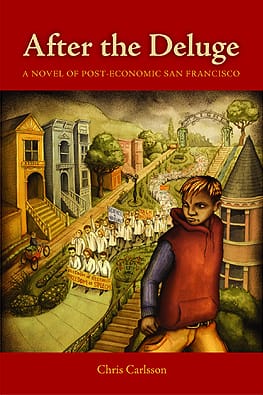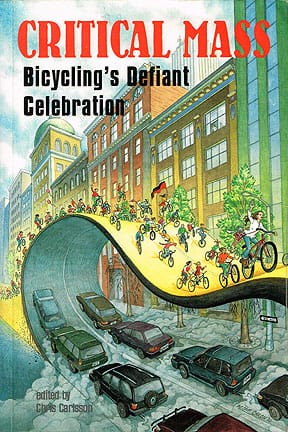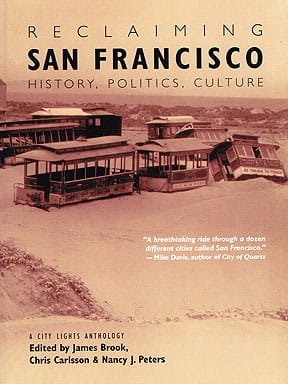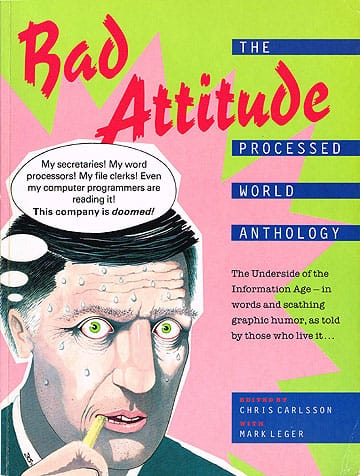I spent three weeks in Scandinavia in late 2009. I’ve been to Denmark several times before (my mother hails from there), so I wasn’t expecting to have any revelations about how different life is there than here. To a great extent, things are quite similar. But there are deep and important differences that I experienced with greater clarity than during any previous visits.
In Norway, Sweden, and Denmark, public transit systems are extremely modern, efficient, frequent and very comfortable, whether inner city subways or intracity train systems. In Sweden we saw no one living on the street and learned that the government was obliged to house each and every Swedish resident, citizen or not. Moreover, if you did not have a job, you qualified for a decent monthly income provided by the state. In Denmark everyone is eligible for practically free higher education, and like Sweden, housing and income are considered social rights. In Norway, a young group of radicals had squatted an abandoned house near the port in Oslo a few years ago, moved out during negotiations with the city government, and eventually reoccupied the building towards the end of their protracted negotiations. The city government finally authorized their presence in the building and set the rent well below market rate in the painfully expensive Norwegian capital. Minimum public-financed income was also the norm there.
How is this all paid for? Taxes! Individuals and corporations pay more than 50% of their income in taxes. But in exchange for these higher taxes, they get free top-notch health care, free university educations, a solid social safety net that includes guaranteed rights to housing and income, and a well-financed and sustainable public transit system.
Americans are notoriously uninformed about the wider political spectrum that exists outside of our borders. In our two-party system, we are regaled with a political spectrum that runs from left (“liberal,” Democrat) to right (“conservative,” Republican) and seems to spend most of its time at the center (“moderate”). But go to Sweden, for example, and you find that none of the dozen or so political parties represented in their national parliament are as far to the right as the liberal Democratic Party of the United States. Our politics has been sliding steadily to the right since Franklin Roosevelt died in 1944, and in spite of much nostalgic enthusiasm for the New Deal, even FDR’s government wasn’t as progressive and lefty as today’s European social democratic regimes.
During the Cold War, Americans were taught to be terrified of anything that might be “socialism,” because that was the first step on an inexorable slide into totalitarian Communism. In spite of a powerful working class movement that gained Social Security through the New Deal, and later got Medicare and Medicaid in the “Great Society” programs of Kennedy/Johnson, a backlash rooted in anti-communism, xenophobia, and white racism has managed to unravel many of the social assumptions that underpinned those gains.
Starting with Richard Nixon in 1969, and going on steadily since then, American politics has shifted further and further to the right. Now we have President Obama, a pro-corporate, pro-military leader, who is doing nothing for the lower classes in society, but somehow represents what “progressive” politics has become. In a European or a Latin American context, Obama would be a clear right-wing figure.
Writing in the New York Review of Books, European social historian Tony Judt takes up the question of what is living and what is dead in Social Democracy?
Americans would like things to be better. According to public opinion surveys in recent years, everyone would like their child to have improved life chances at birth. They would prefer it if their wife or daughter had the same odds of surviving maternity as women in other advanced countries. They would appreciate full medical coverage at lower cost, longer life expectancy, better public services, and less crime.
When told that these things are available in Austria, Scandinavia, or the Netherlands, but that they come with higher taxes and an “interventionary” state, many of those same Americans respond: “But that is socialism! We do not want the state interfering in our affairs. And above all, we do not wish to pay more taxes.” This curious cognitive dissonance is an old story.
With the anti-tax revolt in California in 1978, and the ascendancy of Ronald Reagan to the presidency in 1980, the rightward tilt of U.S. society gained momentum. This tilt was built on Nixon’s earlier shift towards a “southern strategy,” a more-or-less overt embrace of southern white racism in an effort to pry the long-term white Democratic vote loose and shift it to the Republicans. By the time George Bush the Lesser is appointed president by the Supreme Court in 2000, the blue/red split in America mirrors pretty closely the old North/South split from the Civil War. The Republican strategy to exacerbate racial fears to gain political power has had the additional effect of further eroding support for public services, and a culture of mutual aid or sharing.
And indeed, it is not by chance that social democracy and welfare states have worked best in small, homogeneous countries, where issues of mistrust and mutual suspicion do not arise so acutely. A willingness to pay for other people’s services and benefits rests upon the understanding that they in turn will do likewise for you and your children: because they are like you and see the world as you do.
So as we begin the arduous process of rebuilding a culture of mutual aid and solidarity, the racialized mistrust that underlies so much of our politics has to be clearly targeted. The fact that we actually live in a multicultural society, one that is more often tolerant and inclusive than not, is important to remember. But while our eyes have been on status, de facto tolerance, and multicultural diversity, we’ve also allowed the government to shred the safety net, and to facilitate the impoverishment of millions of fellow citizens of all races, while criminalizing and incarcerating over two million of us.
This is not to say that the welfare state was problem-free. But from the point of view of a society that takes care of its own, that shares an ethical approach to the wealth created by everyone working together, providing housing and income as a matter of social right is vital. It’s not charity, a degrading and humiliating social relationship. It’s a right to live with a minimum of decency. In such a society people are inherently “in it together” in a way that people in our dog-eat-dog society aren’t.
Tony Judt succinctly reminds us what Social Democracy means historically, even if it’s largely absent from the U.S. frame of reference. In a more humane future, this history is a crucially important antecedent.
The rise of the social service state, the century-long construction of a public sector whose goods and services illustrate and promote our collective identity and common purposes, the institution of welfare as a matter of right and its provision as a social duty: these were no mean accomplishments.
That these accomplishments were no more than partial should not trouble us. If we have learned nothing else from the twentieth century, we should at least have grasped that the more perfect the answer, the more terrifying its consequences. Imperfect improvements upon unsatisfactory circumstances are the best that we can hope for, and probably all we should seek.
I think we can do a lot better than “imperfect improvements upon unsatisfactory circumstances,” but it’s true that the grand schemes of revolutionaries have rarely produced utopias. Grand schemes and utopias are in short supply these days. Instead, we have marginal political parties like the Green Party of California. This sorry political formation emerged during the early 1990s to reinvigorate a progressive social agenda:
“It was in direct response to the right-wing shift of the Democrats during the Reagan and Bush Sr. administrations. It was so obvious that there had been an evacuation of the left-of-center values and policies that needed attention. So the era was just crying out woefully for a third party,” [San Francisco Supervisor and Green Party star Ross] Mirkarimi said of the Green Party of California and its feminist, antiwar, ecological, and social justice belief system.
Now it is on the verge of collapse, having never articulated much of an agenda, certainly not an ecological one! The Green Party of California was just a slightly leftier split off from the Democrats, and these days their former leading lights are all jumping ship, usually to go back to the Democratic Mothership.
Thinking about the trajectory of Social Democracy in the 20th century, and the rather urgent need for a full-blown transition to an ecologically reconfigured daily life in the 21st century, it’s astonishing at how completely the Green Party has failed to address this. Its members prefer to squabble over electoral strategies for this or that local office. Meanwhile, a legitimate agenda of social transformation is beginning to emerge in such fledgling efforts as the Wigg Party and StreetUtopia North Beach.
The Transition Town movement informs some of these new efforts, but what’s still missing is a political party or group of candidates who aren’t just running for office, but represent a specific, articulated agenda based on Transition ideas, and ultimately permacultural principles. I don’t think such an effort would succeed right away, but after an election cycle or two, with the usual array of empty, advertising-driven candidates who serve power, I think it could eventually win. But such a win would be empty itself if there isn’t a pretty thorough-going agenda that challenges economic power, ecological crises, and the technologies of daily life. I’ll come back to this in a later post, but I wanted to throw it out there. Political power cannot be ignored forever, and if we’re serious about overthrowing the social system that oppresses us, we’ll have to show that we have a better way to organize it. Reinforcing a system that is based on celebrity-manufacturing-to-win-elections is clearly a bad idea. What else might be done? Some of it is already visible in efforts underway, but none of those efforts express themselves in electoral parties or with enough specificity to really challenge the power structure. Somehow we have to leap across that chasm, even if you are, like me, antipathetical towards electoralism and government, not to mention capitalism!













Great stuff.
There has been a “left” -libertarian backlash IN FAVOR of Nixon, seeing his panicked stewardship of EPA, universal wage proposals, and whatever else was New Deal-lite in his hideous administration as somehow reflective of a Cesar Chavez at-heart liberalism.
The left had headline-grabbing, epater les bourgeouis power back then, and Nixon reacted accordingly, though dropping bombs, concentrating wealth, and enforcing draconian selective locking-up was his real metier.
However, there are no signs that we are leaping across any chasm. We are not going to get to 350 ppm, not even a possibility of it. The US political structure is showing its horrific neoliberal focus evermore. So what can the good Scandinavian countries offer us? They may have a functioning welfare state as you say, and may be leagues ahead in various areas, but I did not get a sense from your post that they have broken up corporate rule, or have generated a transformative political structure, or are contending with the larger implications of their global connections. Why have they generated only centrist politicians across the board? I certainly value your report, and remain open to encouragement